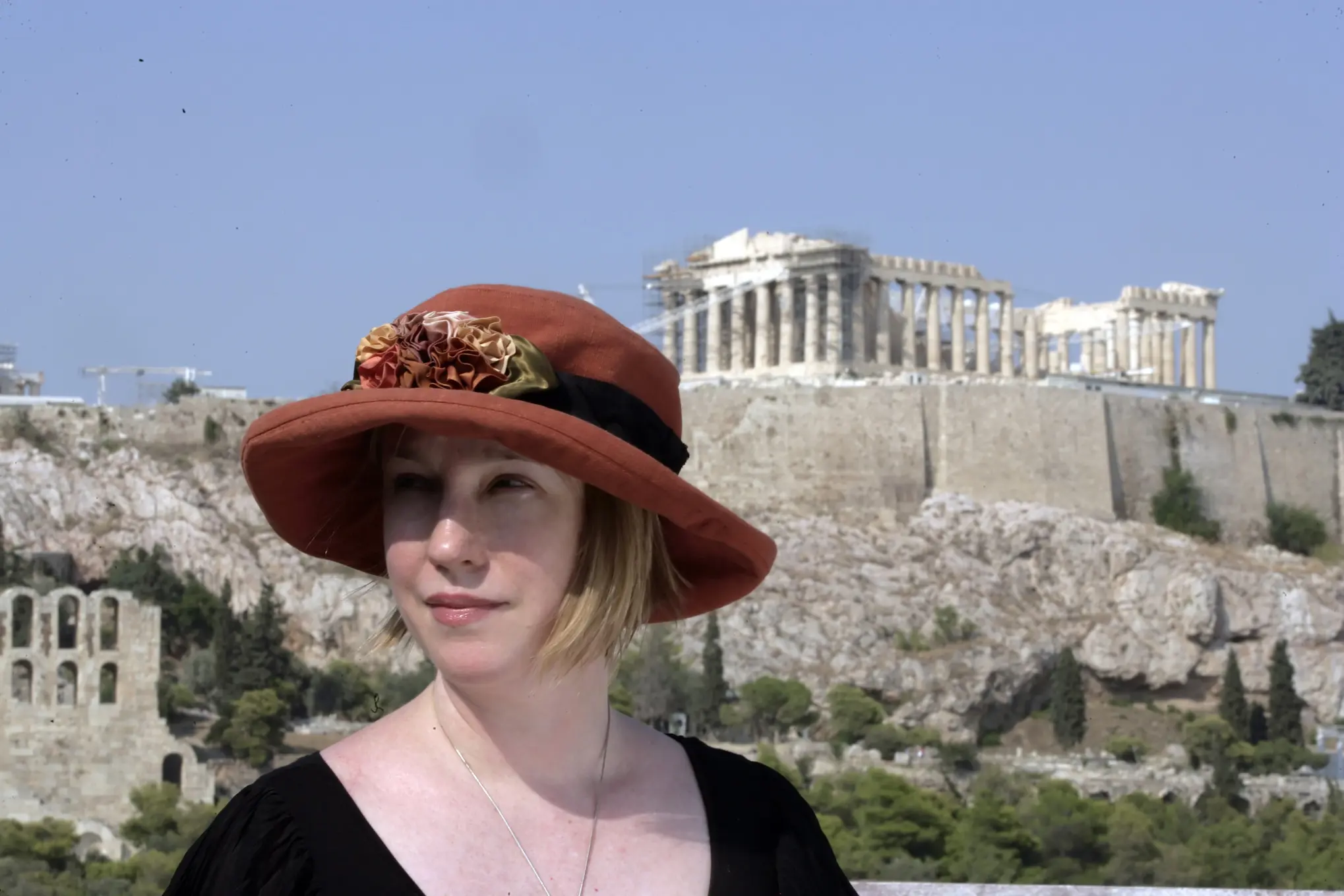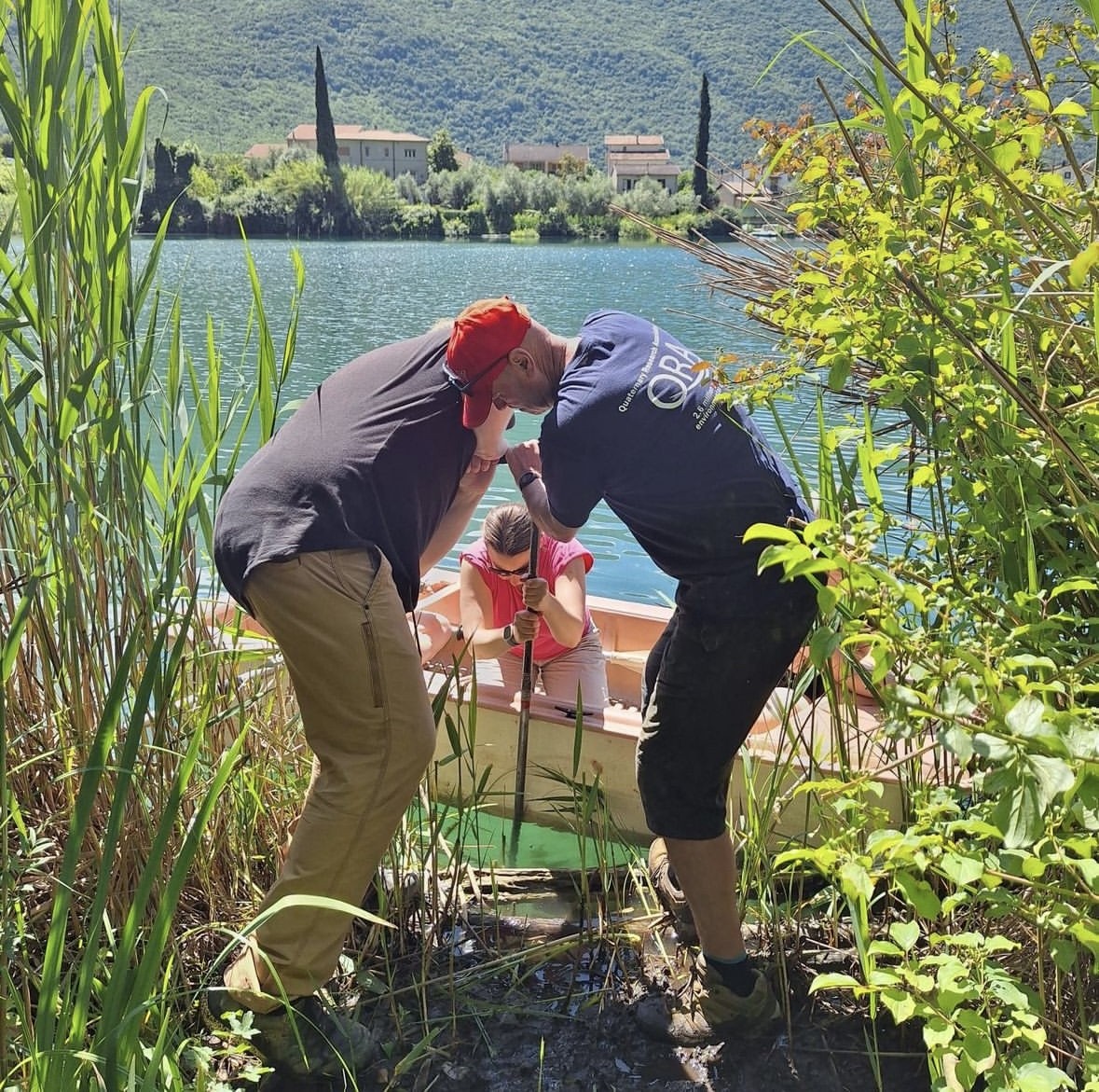Here are the archived Spring 2024 entries from our ongoing blog series, ‘Scenes from the Life of the Department’.
The current season of ‘Scenes from the Life of the Department’ can be accessed here: https://royalholloway.ac.uk/research-and-teaching/departments-and-schools/classics/classics-schools-and-outreach-hub/scenes-from-the-life-of-the-department/.
Week 1: Student internships with the Classics department’s Myth and Voice: storytelling for community making project - Dr Efi Spentzou
Dr Efi Spentzou, the Myth and Voice Lead, writes:
“Myth and Voice thrives on the youthful energy, commitment and creativity of our volunteer student co-creators of our participatory Myth and Voice workshops. I am continuously impressed by our students’ ability to think on behalf of others, to put themselves in the shoes of new audiences and to act as enablers of community and expression. So, we are delighted that we can now offer a modest financial recognition to a small part of this rich contribution with a program tailored to the intern students’ needs that will help them develop skills and experience in: co-creation and student-led syllabus design; in working with young people; in getting involved with programs of active citizenship and community programs, more broadly; in storytelling and applied theatre as community building tools.
Linnie Serstobojeva (2nd year undergraduate), Jojo Hills (Masters by Research in Classical Reception) and Tom Barrett (1st year PhD student) are embarking on their internships this January and I very much look forward to mentoring them and supporting their exciting work.
These three internships were made possible due to an educational grant by the Council of University Classical Departments (CUCD) matched by the Royal Holloway School of Humanities - many thanks to both. And please watch this space for the students’ reports later in the year!
If you are interested in finding out about our Myth and Voice community storytelling program please check https://mythandvoice.org/ with info on the workshops, community voices, my reflective journal, gallery and more."
Week 2: Classicists at the “Meet the Grads” Night 2024” - Linnie Serstobojeva and Oscar Standidge, 2nd year students
The Humanities School Careers Event on Tuesday was a great success according to all the reports we received both from staff and from students who took part. Classics alumnae, such as Megan Wright (now working in the Charity sector) and Hannah Lessiter (working for a Rare Book firm) and current students were central to the success of the event. Two of the students involved, Linnie and Oscar, have shared their impressions:
Linnie writes: “On Tuesday the 16th of January, I interviewed alumni of Royal Holloway for a careers event centred around helping humanities students. It was my second year helping out at this event, and both years I’ve seen how useful it’s been for students that chose to attend. The evening followed a brilliant format organised by Louise Ogle and her colleagues; for a duration of 10 minutes, myself or my co-presenter, Mia Cavanagh, would improvise questions to ask the alumni speakers that we thought would be commonly brought up, and then students had the chance to speak in depth to alumni at booths outside the lecture hall for further questions.
As a Classics student, I found it particularly wonderful to interview alumni that shared my degree, which was the case for multiple speakers. Especially useful were their talks on ways classics as a discipline had boosted their employability: this came as a reassurance to students with post-graduation job concerns. Lots of people attended the evening from across the humanities departments, and I managed to get some feedback from some Classics students – who only had positive things to say. Most commonly it was brought up that they liked the experience of being able to talk in person to alumni to ask advice, and that the event opened their eyes to career paths they didn’t know existed – or that were possible for them to pursue.
Personally, it was an incredibly fun night, and I was delighted to accept an interviewing role again. The idea of speaking to alumni in front of a filled lecture theatre can seem a bit daunting – especially with how much improvisation goes into it – but as someone looking to go into teaching it was a valuable night. It was so interesting to see how people’s degrees led them to where they were, particularly the classicists, who were employed in such a variety of fields!”
And Oscar adds: “This event was to help humanities students in looking for a job market to do with a humanities degree. Whilst I was there to help out by pouring drinks, and collect the speakers so that they could have their interviews (on what they do for a living and how they managed to get from their degree to their degree), I managed to talk to the speakers which was incredibly helpful in understanding where to go after my degree in Classics.
Of course, I didn't do this by myself, and I was there to help out with 3 other students, Linnie Serstobojeva, was one of the main interviewers for the event, Holly Workman, who also gave up her free time just as I did, to help out at this event as a runner who did a lot more work than I did as she had more people to take into the interviews. There was another student who does English (Mia Cavanagh) who also worked as an interviewer. All these students knew that this was a worthwhile experience and helping out was a very good experience to do. I can say for myself that the event did give me confidence in finding a job after a university degree. All I can say is that the event was useful for those interested in a future in the humanities department and that all who helped should be given the credit and thanks they deserve in making it as enjoyable as possible for those who attended.”
Week 3 - Farming for Families: Having fun with Economic History (Really!) - Prof. Richard Alston
“This year I am teaching a year 3 course of social and economic history. We ask key questions: how did the Romans survive? How did Roman society get from generation to generation? And we start with early Rome.
Everything points to the first Romans being very poor. Their farms were really small, often only as big as a football pitch. My class has to work out how they can survive on so little land and what does it mean for their lives and livelihoods. I think what surprised them most is that not having much land affects whom they can marry. So, we role-played scenarios.
Four of them became farmers and they were given varying amounts of imaginary land. So now they had to find someone to marry them. And when someone was deciding to get married, there were more pressing concerns than whether the perspective spouse had nice eyes and an excellent sense of humour. Choose the wrong partner and you or your children don’t get enough to eat. We paired them off; the dowries were exchanged and then we randomly assigned children (with the help of dice). The family property was split in the next generation. Then we repeated the process.
A couple of generations later we had some who were landless and couldn’t attract a partner. Others had quite nice little estates and were looking for people to work for them. And suddenly, we had reconstructed a Roman class structure and we had people muttering about revolutions. From farming to families to class to politics.
But now the class really wants to try their hands at farming. We are trying to persuade someone to buy us a little plot. We can plant grain and vegetables. Maybe we could run to some olives and grapes. We are pretty sure we know how to plough, but less certain that we can find a plough or an ox to pull the plough. We are preparing business plans in the hope of attracting some capital investment.
They are pretty determined that the farm will be in Southern Italy though… I am wondering whether the Classics Departmental budget might run to that. It is after all an excellent investment in the many skills of my talented students.”
Week 4 - My final year dissertation and the National Gallery in London - Ella Bradbury, 3rd year student
"When I first came up with my thesis, ‘Artistic Representations of Ovid’s Metamorphoses in The National Gallery, London’, I was lost at where to start. I had no background knowledge of art history when starting my dissertation, and although I had studied Ovid in detail throughout second year, my lack of expertise when attempting to enter the world of art studies was, of course, daunting. However, I believed in my idea, and this eventually led me to The National Gallery, where I began building my experience of studying classical myth through more than just ancient texts, and into the world of iconography and art history.
The idea for my dissertation had stemmed from my study of Metamorphoses in the second year of my English and Classics degree, where considerable amounts of the study involved reading criticism from scholars who interpreted the mythic traditions in Ovid in less conventional ways, for example reading from a feminine perspective. This is what lead me to combine my interest in art, as I believed that comparing the representation of myths in another medium would create an interesting, insightful, and a slightly unique dissertation.This search for art lead me naturally to Trafalgar Square, through the doors of one of the world’s most renowned galleries, The National Gallery, and even further into room twenty-nine, The Wolfson Gallery, which has slowly become the main focus of my dissertation. Its walls, arranged with Venetian art, display four of Titian’s boldest mythologies, representing three of the most well-known mythologies in Ovid’s Metamorphoses.
Narrowing my dissertation down to just studying this singular room stemmed from visiting the gallery itself. Understanding the true scale of room twenty-nine and the impact of Titian’s mythologies became clear the moment I walked into the Wolfson gallery for the first time. Its pure size, barreled ceiling, and striking green walls combined with the dramatic canvases depicting lively mythologies stood out to me not only as just an impressive representation of Venetian art, but also as something that could be studied in extensive and more importantly interesting detail.
Of all the paintings in the gallery, there was one that stood out to me the most. Titian’s Bacchus and Ariadne is a painting which I believe everybody who has access to London and The National Gallery should strive to go and view in their lifetime. Not only is the painting striking, colourful and dynamic, its iconography is entertaining, and develops the tale of the two lovers using the brief mention that Ovid gives to the pair at the end of ‘Ariadne and the Minotaur’. This painting stood out to me for these very reasons, and although my dissertation goes into extensive detail and somewhat rereads the painting from a feminine perspective, focusing on Ariadne rather than Bacchus and his entourage, when put simply, I believe that this painting is one that should be on anyone who is interested in art, classics, or mythologies lists. If it can strike me enough to produce an eight-thousand-word dissertation on, it is likely to be impactful on anyone else who views it!"
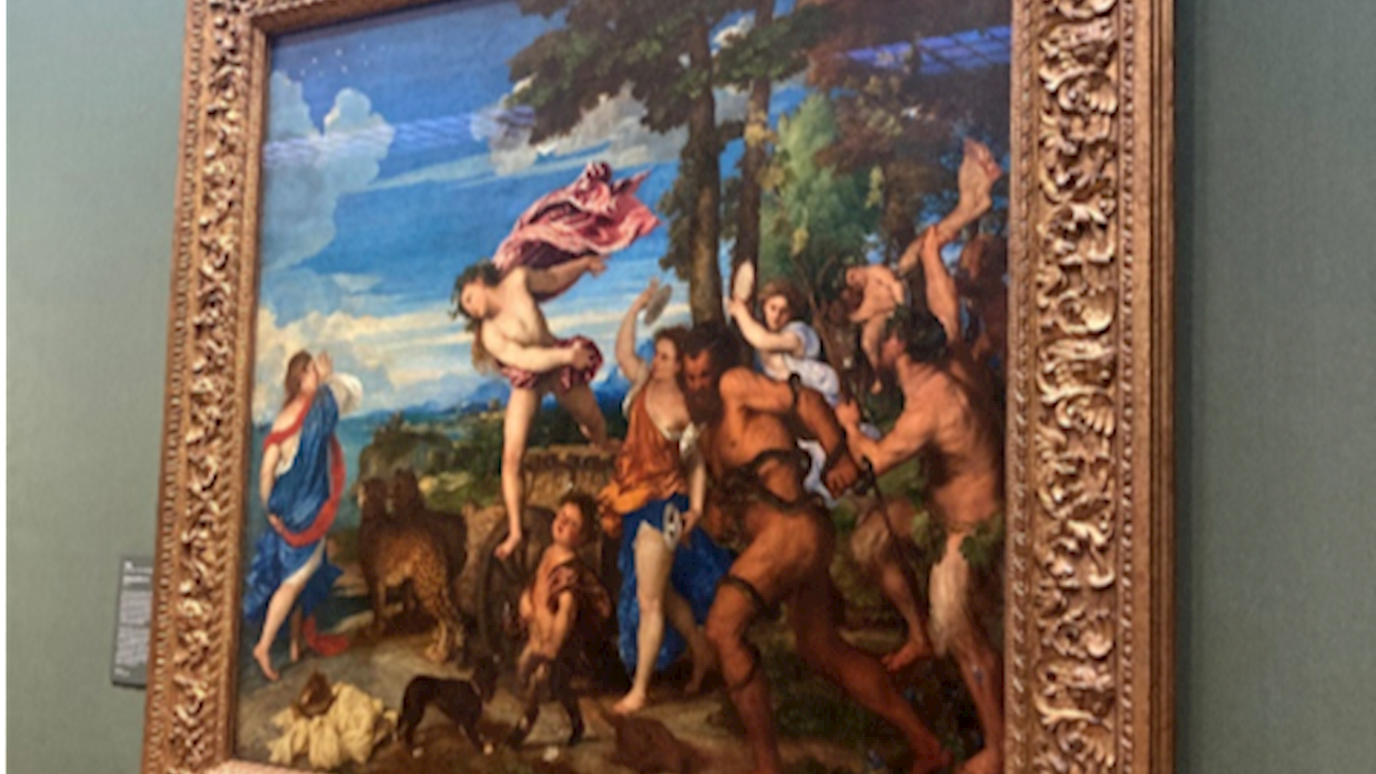

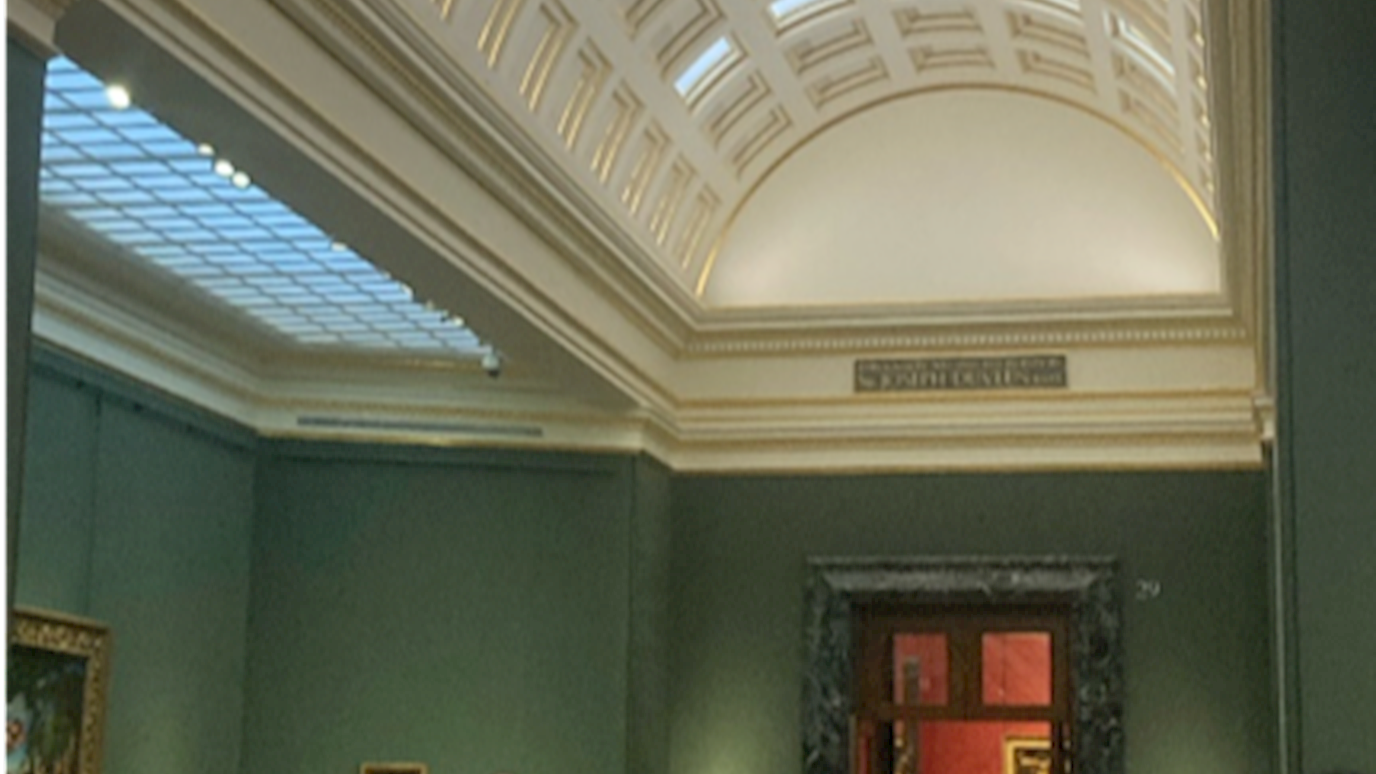
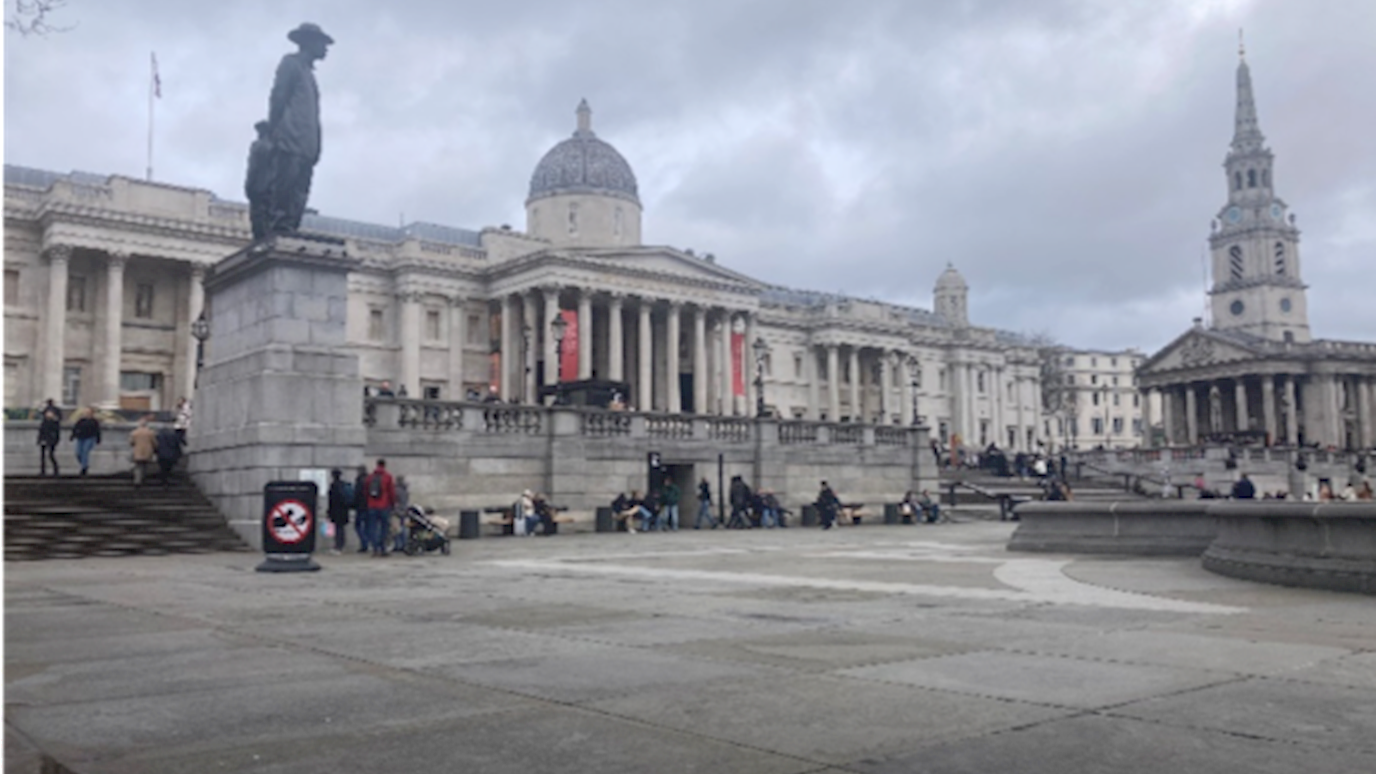
Week 5: Cold, wet and windy with Magnitude Surveys - Ellis Cuffe, 2nd year PhD Classics
'Hello there, I’m Ellis and I’m a Techne-funded PhD candidate in Classics. As a part of my funding arrangements, I am allowed to undertake up to 6 months of CEAs (Career Enhancement Activities). Thomas Sowell was recently asked: "How do you make something of yourself today?". He replied: "You equip yourself with skills that people are willing to pay for." This was in fact my second CEA. Back in 2022, I was a historical researcher for 6 weeks with Lion Television, the guys that produce Horrible Histories.

Look! Honest! I am riiiight at the end of the credit roll, juuust as the autoplay feature comes in.
This time, however, I worked for 12 weeks with Magnitude Surveys which is a commercial geophysical survey company based Up Norf’ in Bradford. They look to ‘assess sub-surface archaeological potential', often in advance of planning permission applications for construction and infrastructural projects. In ideal circumstances, we find amazing things like previously-unknown Roman villas or medieval villages; at other times, it's underground services, ridge and furrow or nowt.
What then did the normal day-to-day experience of working with a “geo-fizz” company look like? Well, blisters galore! At least at first for a growing lad with office-made feet. The best piece of advice that I received was to double sock at all times, otherwise you’ll be in for similarly nasty surprises (I won’t share images, it’s before the watershed hour). Moreover, being cold, wet and windswept on the edge of Bronze-age barrow pitted with muddy badger sets is not my usual idea of a nice stroll in the countryside.
We worked away most of the time, so the entire experience was also some sort of strange social experiment in which you need to run with some socially acceptable part of your personality with another human for up to a week at a time. Having been a bookworm for the past decade and not trialled myself in a long time, I was initially hesitant but acclimatised and even started to enjoy working with and getting to know lots of different people. I can now confirm that I am resoundingly…‘normal’.
Once your feet toughen up and you no longer wheeze with each step, you even start to take in the majesty of your surroundings and embrace some pseudo-Buddhist sense of ‘being at one with nature’. This was especially true on bright Winter mornings, crunching to site over frozen cobwebs on the grass. Surveying in Lincolnshire also brought us near to several RAF bases for a few weeks. We were bedazzled with Red Arrows training flights and jet fighters which flew in squadron formations and were dogfighting over our heads. We travelled the length and breadth of the country to places you would rarely dream of visiting – is Sleaford on anyone’s travel bucket-list? Also, no offence to the inhabitants of Sleaford but your river is really more of a stream. I was disappointed.
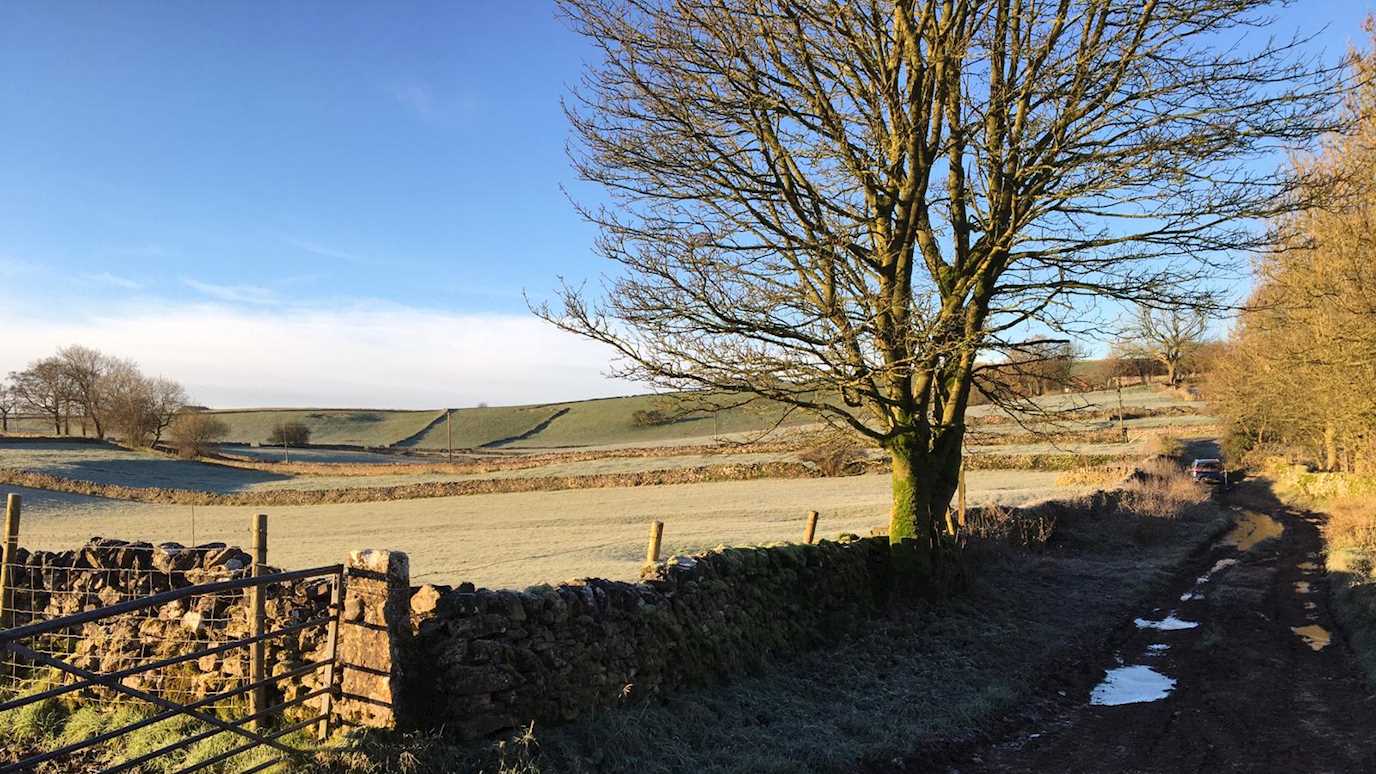

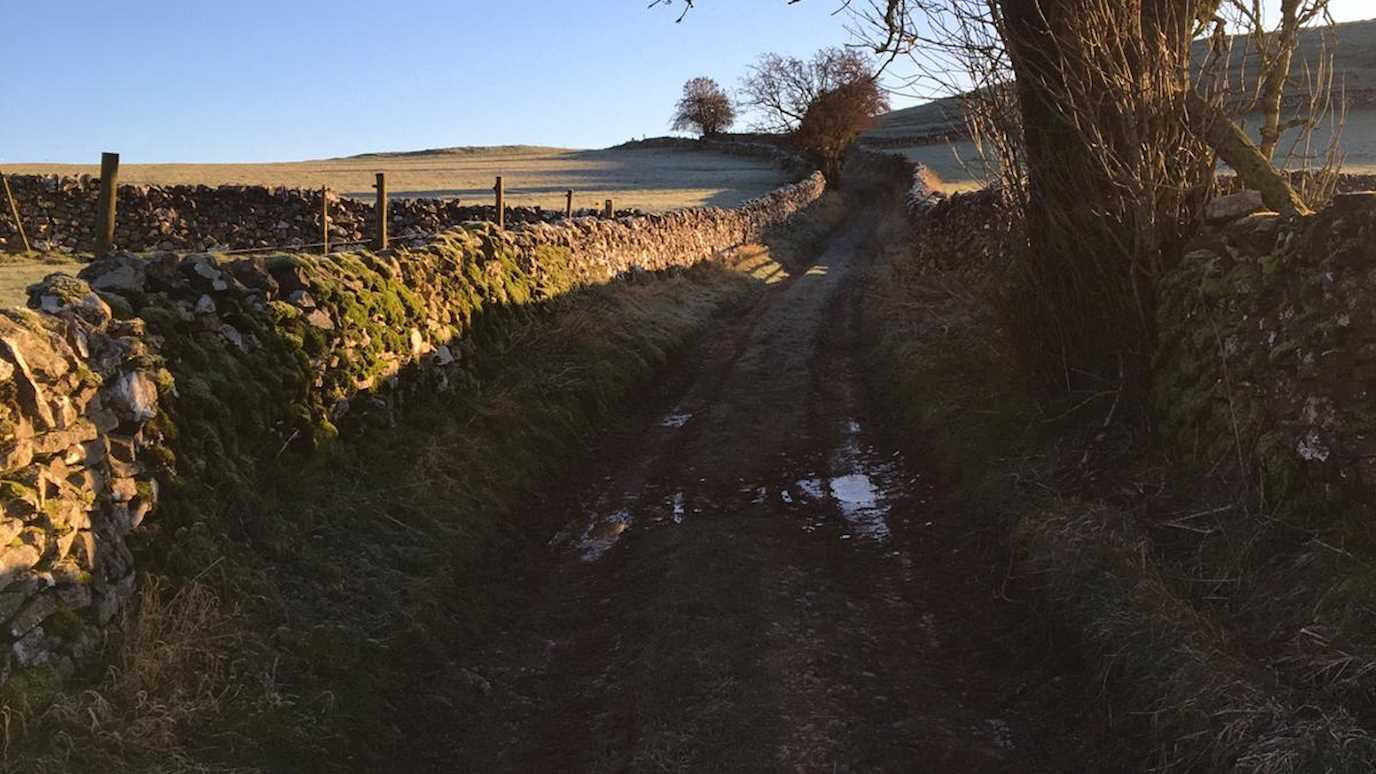
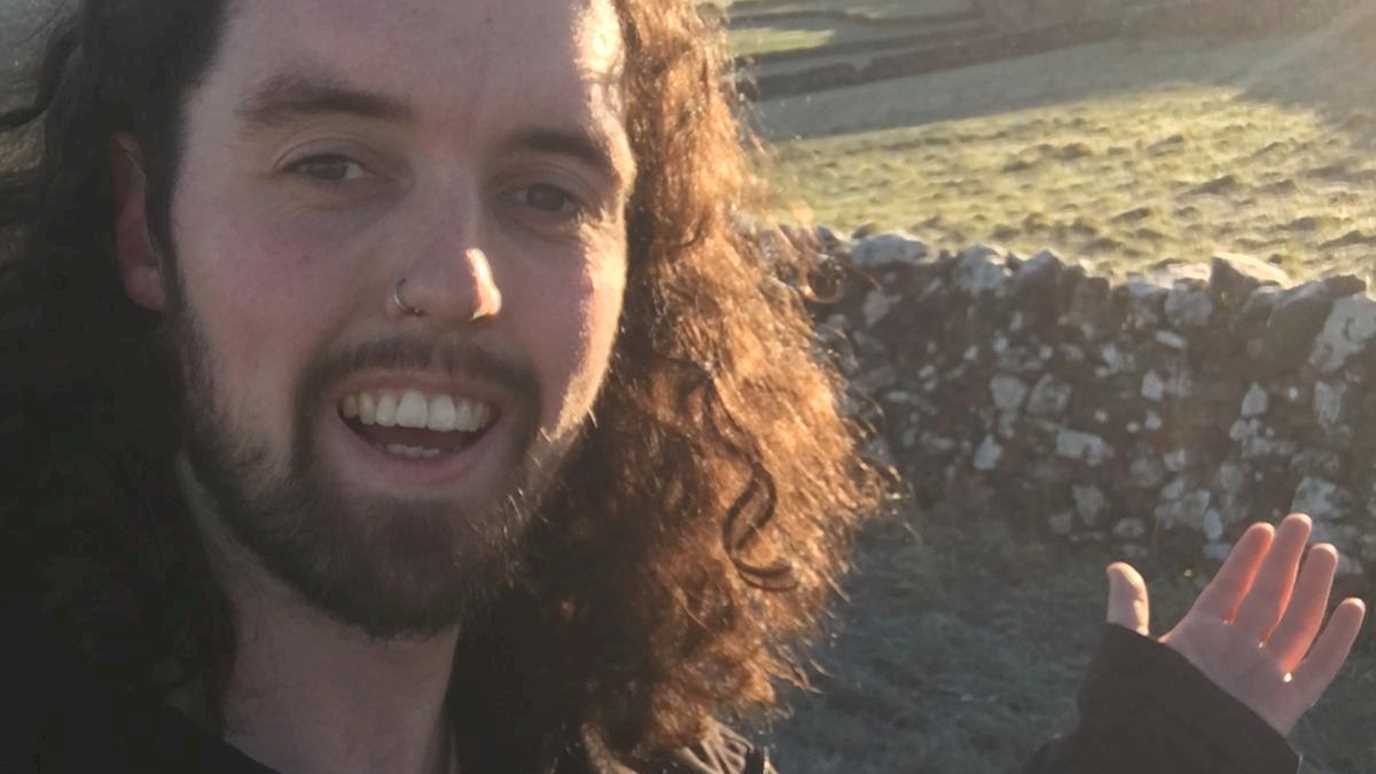
I admit, these are all superficial at the end of the day. It’s because the staff at Magnitude were fantastic and I felt welcome from the get-go. In particular, I would like to give a shout-out to Laika, the Head of Security. I was slightly nervous on my first day walking into the office but Laika, the director’s German shepherd, quickly calmed me down by dumpffing onto my feet and demanding strokes. I felt immediately at home. I also learned loads of new useful skills, including of course geophysical survey skills (especially magnetometry and GPR), but more importantly skills in using GIS as an analytical tool (which is currently on the UK’s shortage skills/occupation list), and even limited knowhow in power-tools (electric sanders and pillar drills being among my favourites. Strangely everyone took a step back when I grabbed one…?). Wonderfully, Magnitude asked for me to keep in touch with them because they’d like me to go back after the end of my PhD. I’ll let you in for a secret – these foot-in-the-door scenarios are invaluable because so many new-born Doctors come out the other side of a PhD with a nice piece of paper, a floppy hat and little else. Magnitude are always on the hunt for new surveyors but I have decided that this was a personalised invitation.
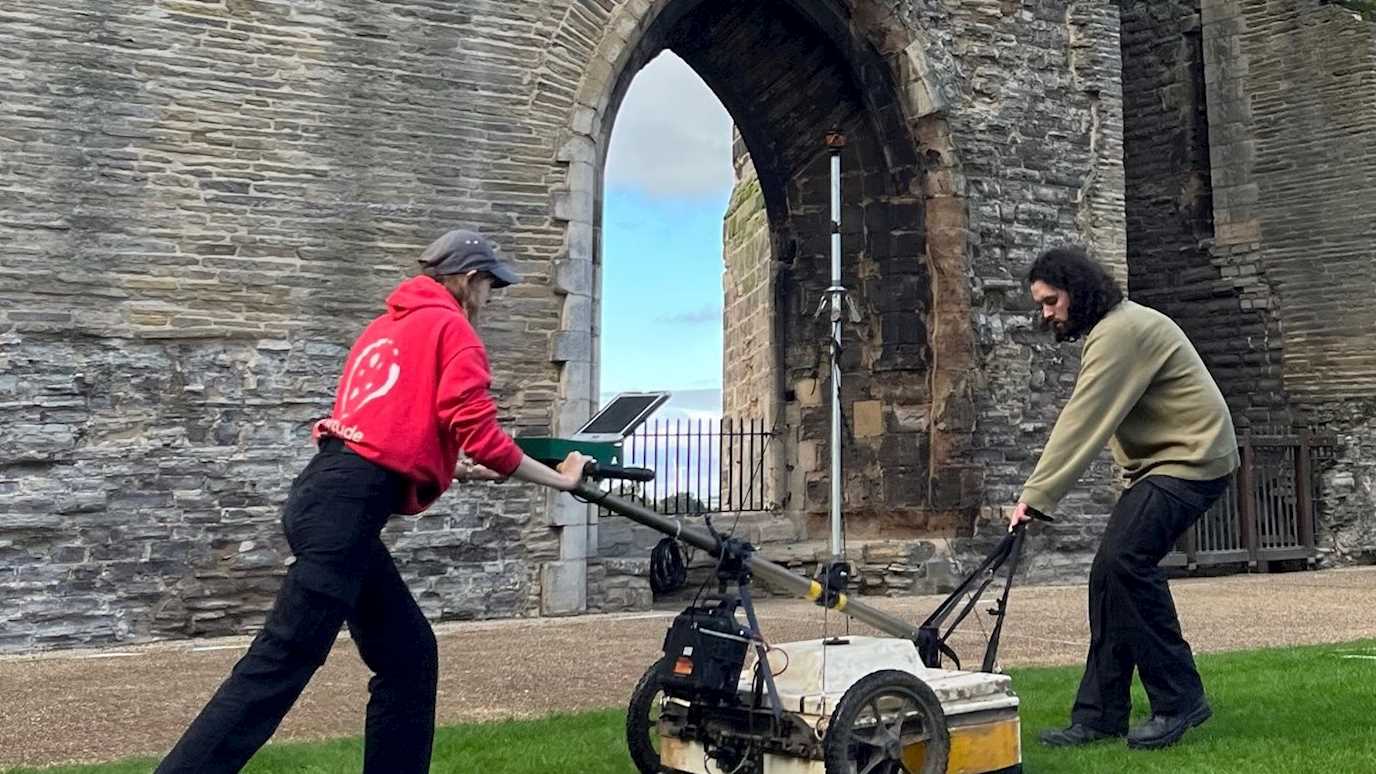

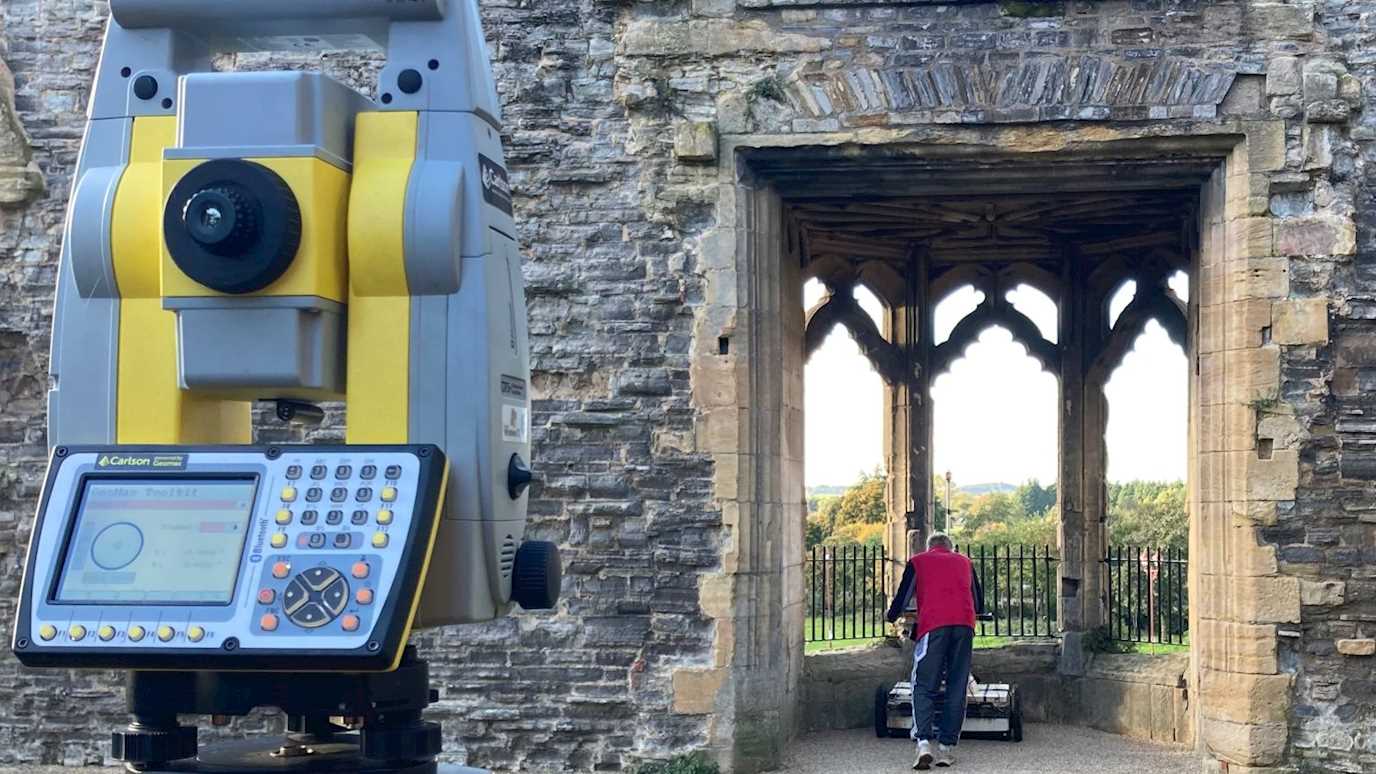
I even received a lovely leaving card. This was in fact my first proper job and therefore my first proper leaving card. I blushed when I received it! The card is covered in ducks and had miniature ducks packed inside of the envelope, too. I must have mentioned that I have Halloween-themed rubber ducks in my bathroom at some point. The things you talk about in the van…you forget after a while…"

Week 6: Reflections on being a student ambassador - Lily Gregory, 2nd year student
"Hello, my name is Lily, I am a 2nd year Classical Studies student and a student ambassador. I started my job as a student ambassador back in September 2023, and I have enjoyed every moment since. Being able to meet prospective students with similar and also different to me backgrounds has been amazing; being able to see how so many different people have been brought together through Classics has been super eye opening. I was first introduced to Classics at A-Level where I fell in love with the subject, and my teacher, Sam, encouraged me to continue with my Classics education at university, and I did. You could always hear in her voice during lessons how much of a passion she had both for teaching and Classics, and I will always be grateful for her. Sam was an undergraduate student here at Royal Holloway, and it was her encouragement and stories of the university that made me want to come here. When I came here on an Open day and when I began studying here in 2022, I couldn’t have agreed more with her.
Being able to engage with a whole range of prospective students is something I find really fun. In the January 2024 Open Day, I sat in on mini lectures given by Dr Liz Gloyn and Dr Erica Rowan, and getting to see how different individuals began to light up at certain facts or how the lecturers gave the lecture inspired me when going back to my studies after the event. And I still have in mind the face of one particularly enthusiastic visiting student who approached me with really inquisitive questions and the pride in their parents’ face watching discreetly from a little way back. I remember the feeling very well, not being able to get the smile off of my face on Open Days, and even to this day I can be sitting in my lectures, and I can’t hep but smile at how lucky and inspired I feel.
Within the Classics department at Royal Holloway, everything is aimed at making my studies here better, the lecturers are super communicative, and I am always able to contact them whenever I need them, both in an academic and personal way. They are extremely supportive of me, and their feedback helps me to become the best student I can be. It is very nice to be able to have an academic talks with my lecturers but also be able to talk to them about things going on outside of my academic life."
Our fantastic student ambassadors (Lily, left) with Prof. Christos Chremmydas.

Week 7: Trying to change Classics for the better, one Zoom meeting at a time - Kevin Xu, 3rd year Classical Studies student
“Hi, I’m Kevin, a third year Classical Studies student and, also, on the committee of London Classicists of Colour as Academics Officer this year. For those who haven’t heard of LCOC (London Classicists of Colour), it’s a student-led society made up of students from the University of London group (UCL,KCL, RHUL, Birkbeck) with the mission to diversify and decolonise Classics. We try to do this by creating a community for students, especially POC (Persons of Colour) classicists, by hosting events like talks, tours, socials and welfare sessions. Our tours are usually some of our more popular events since we aim to introduce more nuance to how we approach heritage by giving a spotlight to more niche items in collections and the history behind their typically dodgy acquisitions. Our tours also try to highlight other Ancient cultures from the world and explore lesser taught subject matters like Assyria. Also, occasional collaborations with other unis or groups lets me really broaden the research I do, for example I am doing a small presentation with KCL-LGBT society soon about queer literature in Ancient China under the title; ‘Tales of tombs, Twinks and T-Shirts’.
(Below - Kevin doing tours talking about Lady Layard’s necklaces’ archaeological ethics and the LCOC logo)

But I think some of the really impactful and fun work is getting to know Classics departments at the other London unis to get in touch for changes to improve the way Classics is taught. So, I just wanted to share a little of my work as part of LCOC with our Classics department here at RHUL! It’s been super cool to have organised a departmental meeting where many of the lovely staff here were able to meet online with LCOC committee to discuss potential improvements to inclusivity and diversity along with the preexisting work that the Uni already does to help solve any EDI issues. Getting to work with the Classics department itself feels like real progress in helping improve the way Classics is taught for current and future students to embrace diversity or promoting the field of study to larger demographics. Other meetings with departments at UCL and KCL mean that I hope to help create a promising network of cooperation between universities teaching Classics.
If you’re interested in LCOC, check out our website or social media! It’s a great society for change and meeting new people from some of the other London unis, so I’d totally recommend younger year students check it out. It's been a great way to engage with the Classics department along with academia itself through fun community led work and I’ve loved being part of it for a year-ish now!”
Week 8: Memory, Conquest and Community in the Western Provinces of the Roman Empire - Harry Triggs, 3rd year Classics PhD
"Hello! I’m Harry Triggs, a 3rd year PhD student in the Classics Department. I also lead seminars for the Introductory Roman History module.
My research focuses on memory, conquest and community in the western provinces of the Roman Empire. I examine how group memory in Britannia, Gaul and Germania was used to create communities. In post-conquest settings memory had a generative impact on local communities, and examining how people commemorated themselves is a fascinating way of tracing ancient community development. Tombstones are evocations of personal memory that integrate these memories into the collective memory of multiple social groups. They depict multifaceted, hybrid communities that champion complex individual identities far deeper than simply “Roman” and “non-Roman.”
This tombstone from Cologne commemorates Marcus Valerius Celerinus. He had a Roman name, Roman citizenship, and was a veteran. But his tombstone celebrates membership to other communities. He was from Astigi in Spain, and was a civis Agrippinensis, a citizen of Agrippinensium, the Roman name for Cologne. His memory is tied to multiple different places and groups. This gives us an indication of the general makeup of Cologne’s community, but it more importantly demonstrates that personal identities in the Roman Empire were fluid and hybrid. A “Roman” soldier from Spain could settle in Cologne and happily call himself a citizen of Cologne at the same time. It is through memory that Marcus integrated himself forever into these various communities, and in turn established these groups as part of Cologne’s own memory framework."

A helpless god: retelling Virgil’s Aeneid for a creative writing 2nd year project - Holly Workman, 2nd year Classical Studies
“I began my second year studying intermediate Greek, and I realised, quite quickly, that I had made a mistake! I realised that I wanted to do the Second Year independent project module instead, so I essentially ran to the office to change it.
Fortunately, they allowed me to do this! I began my first term project for the module Empire and its Others in Virgil’s Aeneid led by Dr Efi Spentzou. My task was to write from the perspective of an “other” character in the Aeneid, to give a voice to a character without much of one. I went through many ideas, starting with Camilla, then the Sybil, before I landed on my final decision, Apollo. Apollo has always been my favourite Classical figure, and with the limited presence of the gods in the Aeneid, it felt like the perfect decision.
At first, I found myself very challenged by the task, I was unsure how to effectively write in first person, and my experience in creative writing was quite limited! Though eventually, I broke through my writer's block by just writing down the feelings I’d expect Apollo to have felt during the events of the Epic.
I focussed on a feeling of helplessness uncharacteristic of gods in Epic. I wanted to explore the impact of predetermined fate on the god of prophecy, how seeing an unchangeable future for the mortals you love can be heartbreaking and devastating. I used the dynamic of Apollo as Aeneas’ protector to my advantage, creating a reflective piece in which Apollo looks back on the times he helped Aeneas, or wished he could have done more. By applying these feelings to a god, it almost humanises them, and I felt as if I had gained a greater understanding of the seemingly absent god in the Aeneid.
I also found trouble in deciding when to set my piece, I could not find a suitable moment in the Epic that made sense to me. Eventually, I decided to set it in Augustan Rome, with Apollo looking down on it and reminiscing about the past. This turned out to be an excellent decision as it helped me include the importance of Augustus in the Aeneid.
All in all, it was a great experience! Even in the final moments of a last-minute submission, I enjoyed this project through it all. It might even encourage me to do more creative pieces in the future!”











